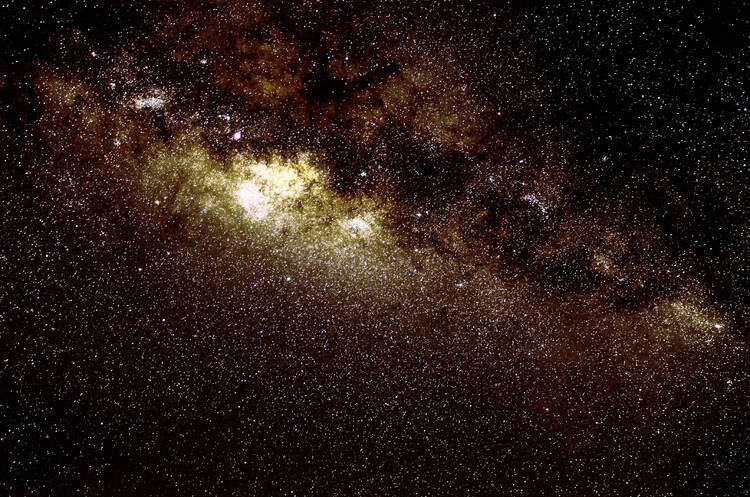He heals the brokenhearted, and binds up their wounds.
He determines the number of the stars; he gives to all of them their names.
~ Ps. 147.3-4
As the mother of four children, I cannot think of an experience that more powerfully encapsulates the immanence and transcendence of God than childbirth. It is at once an intense encounter with the physical realities of the body and an intimate brush with the miracle of divine creation. And it is a profound illustration of the richness of the mystery of God that our psalmist seeks to describe.
God is the all-powerful creator of the universe and the all-embracing healer of the individual creature. Like a loving mother, God bandages our skinned knees, healing broken hearts and wiping away tears. Yet this same tender LORD is the master of all creation, who calls the stars by name. In linking God’s creative and redemptive love simultaneously to each living creature and to the infinite universe, the psalmist anticipates a truth that contemporary science reveals. We are, as one researcher eloquently observed, “remnants of stars,” our bodies comprised of the residue of massive explosions in the galaxies.
There is thus a marvelous continuity to creation. God is here and everywhere, always and right now. He is the immortal, invisible, infinite God. But he is also the time-bound, fleshly, newborn creature, wrapped in rough cloths, held in his mother’s arms, the Divine One giving himself fully to the experience of being human. Such a mystery defies our ability to understand. Or as T. S. Eliot wrote in The Four Quartets, “to apprehend/ The point of intersection of the timeless/ With time, is an occupation for the saint.”
O LORD of the starry night and the skinned knee, Keep me ever mindful of your magnificence and ever grateful for your healing presence. Amen.
For today’s readings, click here.
You can access the complete collection of the Advent 2015 Reflection Series here.
If you would like to receive these reflections via a daily e-mail, contact Elizabeth Kirkland Cahill at ecahill27@yahoo.com








